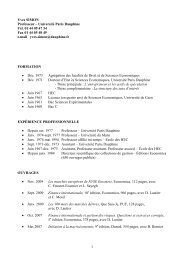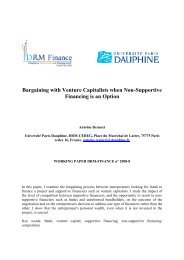Corporate governance and earnings management ... - CEREG
Corporate governance and earnings management ... - CEREG
Corporate governance and earnings management ... - CEREG
You also want an ePaper? Increase the reach of your titles
YUMPU automatically turns print PDFs into web optimized ePapers that Google loves.
another theory to explain st<strong>and</strong>ard SSAP 22 (ASC, 1984) on accounting for goodwill: he<br />
employs concepts from Marx’s political economy.<br />
Many authors have stressed the political aspects of st<strong>and</strong>ard-setting: Hope <strong>and</strong> Gray (1982)<br />
emphasize the role of power in the development of an R&D st<strong>and</strong>ard; Laughlin <strong>and</strong> Puxty<br />
(1983) analyze the political process of st<strong>and</strong>ard-setting in the light of the problem of the<br />
conceptual framework <strong>and</strong> its viability; Power (1992) discusses br<strong>and</strong> accounting in the<br />
United Kingdom; Willmott et al. (1992) theorize the process of accounting regulation <strong>and</strong> the<br />
professes of social <strong>and</strong> political regulation generally, taking accounting for R&D in four<br />
advanced capitalist countries as an example; Fogarty, Hussein <strong>and</strong> Ketz (1994), in the US,<br />
develop an approach based on power, ideology <strong>and</strong> rhetoric; Klumpes (1994) analyzes the<br />
politics of rule development in the case of Australian pension fund accounting rule-making.<br />
Walker <strong>and</strong> Robinson (1993) review this literature. Harrison <strong>and</strong> McKinnon (1986) use<br />
change analysis to reveal the attributes <strong>and</strong> essential properties of regulation in a specific<br />
nation.<br />
The political <strong>and</strong> economic consequences of accounting also require consideration. Zeff<br />
(1978, p. 56) defines the concept of “economic consequences” as the “impact of accounting<br />
reports on the decision-making behavior of business, government, unions, investors <strong>and</strong><br />
creditors” <strong>and</strong> adds that “the economic consequences argument is a veritable revolution in<br />
accounting thought”, accounting policy-making being assumed to be neutral. Zeff (1978, p.<br />
60) illustrates his views with an example that directly concerns goodwill: “It would appear<br />
that the APB was at least somewhat influenced by economic consequences in its prolonged<br />
deliberations leading to the issuance of Opinions no. 16, Business Combinations, <strong>and</strong> no. 17,<br />
Intangible assets”.<br />
Solomons (1978; 1983), too, notes that “few if any accounting st<strong>and</strong>ards are without some<br />
economic impact. The requirement that U.S. companies write off purchased goodwill is said<br />
to give an advantage to foreign companies in bidding for American businesses because, not<br />
7


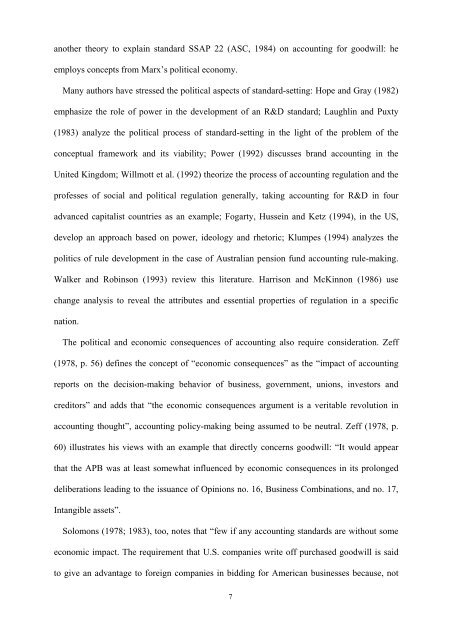
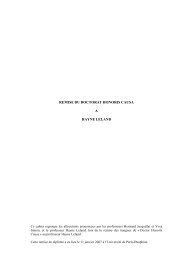
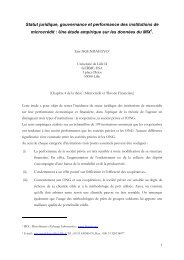
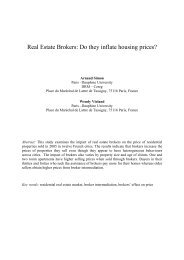
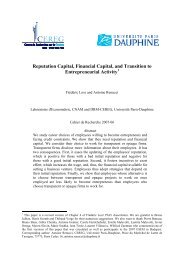
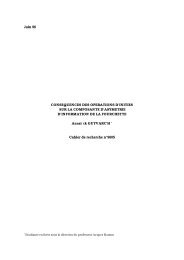
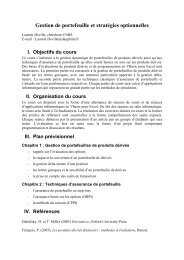
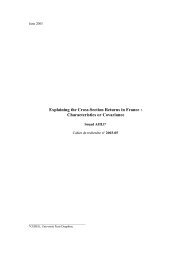
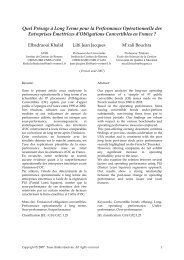

![& 6 ] ^ F ]^ - CEREG - Université Paris-Dauphine](https://img.yumpu.com/33326502/1/184x260/-6-f-cereg-universitac-paris-dauphine.jpg?quality=85)

